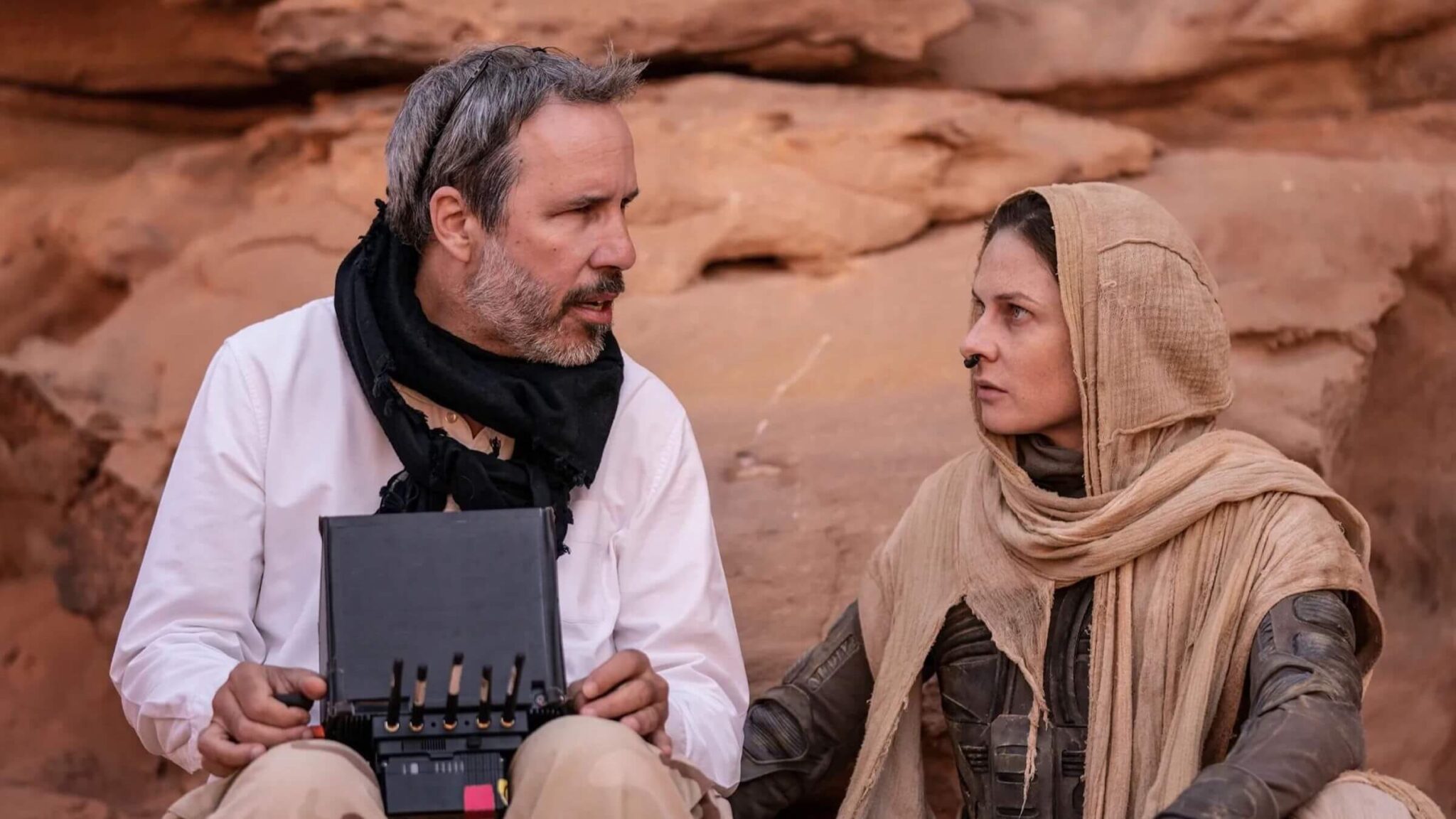3 Reasons Why Pitching is Necessary in Hollywood

Why do screenwriters need to be pitching if their scripts are good enough to get them into meetings in the first place?
At first glance, to most screenwriters, it makes no sense.
You've written at least one amazing screenplay. Either it placed well in one of the primary contests, competitions, or fellowships — which has garnered you meetings — or you've managed to network your way into getting an industry insider to read it. They like it and want to meet with you at their office.
The meeting begins. You have the water they've offered.
You're nervous, but the small talk is putting you at ease. Five minutes into the conversation, they shift the focus to your screenplay. Nine times out of ten, they'll ask you something along the lines of, "So, tell me about your script." That's Hollywood-speak for, "Now it's time for you to pitch."
Some Hollywood insiders may even get to the pitch more organically by asking you questions like, "Where did you get the idea?"
But make no mistake, you're going to have to learn how to pitch.
Hollywood is obsessed with pitching — and old habits die hard. For some reason, Hollywood would rather spend hours in face-to-face meetings instead of just moving forward with whatever scripts they like.
But why? If they love your script, why can't they just option or buy it? Why are you asked to jump through the hoops of general meetings?

Here we cover three reasons why pitching is a necessary evil in Hollywood.
1. If Hollywood Isn't Developing, Development Executives Don't Have Jobs

This may be the hard truth that Hollywood insiders won't admit to, but it's true.
Development executives at studios and production companies thrive on their day-to-day schedules. Their job is to find writers, to find projects, and to package films to take to studios and distributors. If there are no general meetings, they're not really doing anything in between the projects that are actually in active development (with writers attached), which are few and far between.
But before development executives attack this statement, there is an underlying purpose to these meetings — networking.
These meetings where you are forced to pitch stories they've already read aren't about the scripts in question. They are about the development executives keeping their heads on a swivel, always on the search to find the new talent and the new personalities that can woe producers, studios, directors, actors, and agents.
Make no mistake. If they were gung-ho about your screenplay, they'd be calling agents, managers, and entertainment lawyers to broker a deal to buy or option your script before anyone else gets their grimy hands on it.
General meetings are all about prospecting. They want to know who you are and if you're the real deal. They also want to know what else you have in your deck.
2. They Need to Know If You'll Collaborate Well

Film and television are collaborative mediums. You need to be able to mesh well with the people that you go into business with. And these meetings offer producers and development executives the chance to see who you are as a writer and as a collaborator.
When you start talking story, they'll throw some tough questions out to gauge your reactions.
If they question some aspects of your script, are you going to be combative in your defense, or are you going to process what they are saying and take it under consideration? If you're combative, it will be a clear red flag for them. If you're willing to listen and consider, that's going to inform them that any possible collaboration is going to be somewhat of a smooth ride.
With that said, they're also going to want to see if you have confidence in your work. Producers and development executives can't write. They need you to make decisions that they may not have the talent to figure out from a story perspective.
If the general meetings are with potential representation — agents and managers — this collaborative relationship is especially crucial as they will be the ones working directly with you as you develop your career and future projects. This is especially true with managers.
Managers know the script market. They know what Hollywood is and isn't looking for.
A lot of screenwriters have the misconception that once they are represented, all they have to do is write whatever they want, and their representation will go out and sell it. That's just not how this relationship works.
You will need to pitch potential projects to managers, and they will let you know what's worth pursuing and what's not. In the end, it's your decision, yes. But if you're not going to let your manager manage, the relationship isn't going to last long.
Managers also need to know that you'll be prepared for any general meetings they set up for you. A majority of that preparation is the pitch.
The excuse of "I'm a writer and writers are introverted, so I'm not a very good salesperson..." isn't going to cut it. You need to be prepared to showcase that you know your story, your characters, and especially your craft.
3. Do You Know the Art and Craft of Screenwriting — Or Are You a One-Hit Wonder?

It happens more often than you'd think.
A screenwriter lucks out on one of their first scripts and manages to capture lightning in a bottle with a great concept, great characterization, and great execution. But then they suffer that sophomore slump.
Read ScreenCraft's 5 Ways to Avoid the Screenwriter Sophomore Slump!
They can't put another great project together. They're not listening to their reps and are choosing passion projects instead of concepts that will keep them in those general meetings until something hits.
Pitching offers Hollywood the chance to see if you know your art and craft. They can often smell a fluke a mile away, and there's nothing worse for managers than setting clients up for multiple meetings, only to hear back from their Hollywood contacts afterward that the writer froze in the meeting or didn't how to talk story, concept, and characterization.
That is why pitching serves another particular purpose beyond Hollywood trying to determine if you're the Next Big Thing or getting to know you as a person. They want to see that you know the ins and outs of your story, regarding concept, plot, character arcs, story arcs, genre, and themes. They want to see if you can incorporate outside elements, needs, and desires if your script is purchased and if you're going to be ready for the initial rewrite (the original screenwriter always has the first rewrite option in most contracts). They want to see if you'll be able to break down those ins and outs with additional producers, directors, and talent that is brought onboard.
So How Can You Master the Screenwriting Pitch?
No one masters it. No one likes doing it. Even seasoned professionals can often be heard in interviews saying that they hate pitching and hate general meetings. Many think they are a waste of time.
But that doesn't mean you have to set yourself up for failure.
Some agents and managers will help their clients rehearse their pitch. Some screenwriters will script out a presentation, complete with props and visual aids. Some just go in and wing it.
There's no single answer, despite the many books or posts you've read on the subject.
Yes, if you're more introverted, you may need to rehearse things a bit. But it's not about delivering a wooden and overly prepared presentation come game time. It's just about knowing the ins and outs of your story.
Yes, if you're outgoing and extroverted, you can undoubtedly deliver masterfully planned pitches, but you also have to be careful not to come off as too prepared.
If there's a secret to mastering the pitch, it's very, very simple — know your story. Know where the idea came from. Know why you wrote it. Know what themes you wanted to explore. And if you didn't go into the writing process with any predetermined themes, fake it until you make it. Know your concept. Know your story inside and out. Know your characters. Know the structure that your script falls under.
That's the only real homework and preparation that you need to do.
Sure, it would be nice if you have a general logline and synopsis to work from. But it has to be in your heart and soul, not just memorized words that you forced yourself to remember verbatim.
The secret is just to know your story and be prepared to answer the tough questions.
Then your pitch at every meeting is less about performance or presentation, and more about being yourself and talking about this thing that you love — your script.
Pitching is indeed a necessary evil in Hollywood.
Practice with your friends. Practice with your peers. Practice with people you've just met. The best pitches aren't actual pitches. They are merely a compelling and engaging discussion about you, your writing, and this story that you loved enough to dedicate months to write it.
So take that pitch anxiety weight off of your shoulders, embrace the suck, and go talk shop with the people that can make your screenwriting dreams come true.
Read ScreenCraft's 10 Ways to Curb Your Screenplay Pitch Anxiety!
Ken Miyamoto has worked in the film industry for nearly two decades, most notably as a studio liaison for Sony Studios and then as a script reader and story analyst for Sony Pictures.
He has many studio meetings under his belt as a produced screenwriter, meeting with the likes of Sony, Dreamworks, Universal, Disney, Warner Brothers, as well as many production and management companies. He has had a previous development deal with Lionsgate, as well as multiple writing assignments, including the produced miniseries Blackout, starring Anne Heche, Sean Patrick Flanery, Billy Zane, James Brolin, Haylie Duff, Brian Bloom, Eric La Salle, and Bruce Boxleitner. Follow Ken on Twitter @KenMovies
For all the latest ScreenCraft news and updates, follow us on Twitter, Facebook, and Instagram.
Tags
Get Our Screenwriting Newsletter!
Get weekly writing inspiration delivered to your inbox - including industry news, popular articles, and more!



























